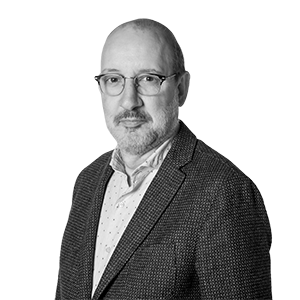The democracy that Franco and Juan Carlos gave us


If they thought they could do without him at the events commemorating the 50th anniversary of the restoration of the monarchy (November 22, 1975), his memoirs are there to tell them they were sorely mistaken. Neither King Felipe nor the Spanish government invited him to the celebration, but Juan Carlos de Borbón has decided to be like Lakoff's elephant, the one you're not supposed to think about but can't avoid.
The compendium of excuses in his biography is so blatant that it's no wonder he reaches conclusions such as the investigations into his millions being "a witch hunt," and says the following: "When the current government discredits me, it weakens our Constitution." He pockets 65 million euros in one fell swoop and still complains about not having a pension.
It's clear that inviolability went to his head and that after decades of praise, he felt above the law. But what's interesting is his political testament. He recounts that when his son cut off his allowance, he told him: "Don't forget that you're inheriting a political system that I built." End of the myth of the democracy we all created. Juan Carlos gave it to us. And Franco: "He made me king to create a more open regime."
Behind Franco and his successor Juan Carlos lies the worst-hidden secret: democracy was the indispensable price for the regime's continuity by other means. The objective wasn't democracy, but the unity of Spain. "The monarchy, as guardian of democratic values, ensures the unity of Spain, and is indispensable in our country, which has a tendency towards division." Don't ask yourself, therefore, whether monarchy or republic, or whether Catalonia can be an independent state. Nor why it is that "the oldest nation in the world" has such a tendency towards division.
